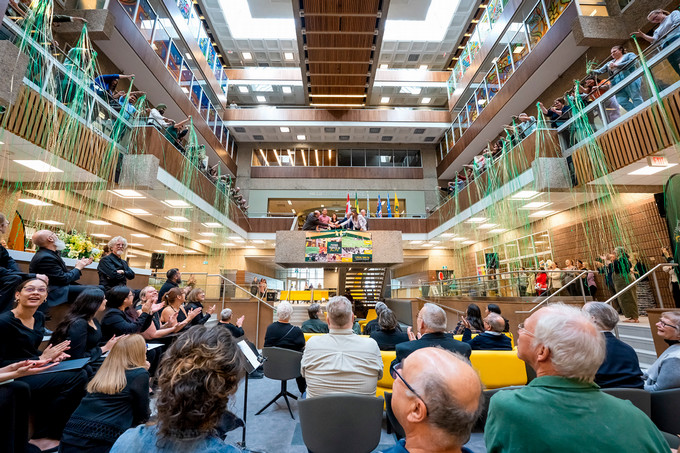The AdHum Pit is back. For more than five decades, it’s been one of the University’s most beloved gathering places. Now, after a major revitalization, this iconic space has been reimagined and reopened, ready to welcome the U of R community today and for years to come.
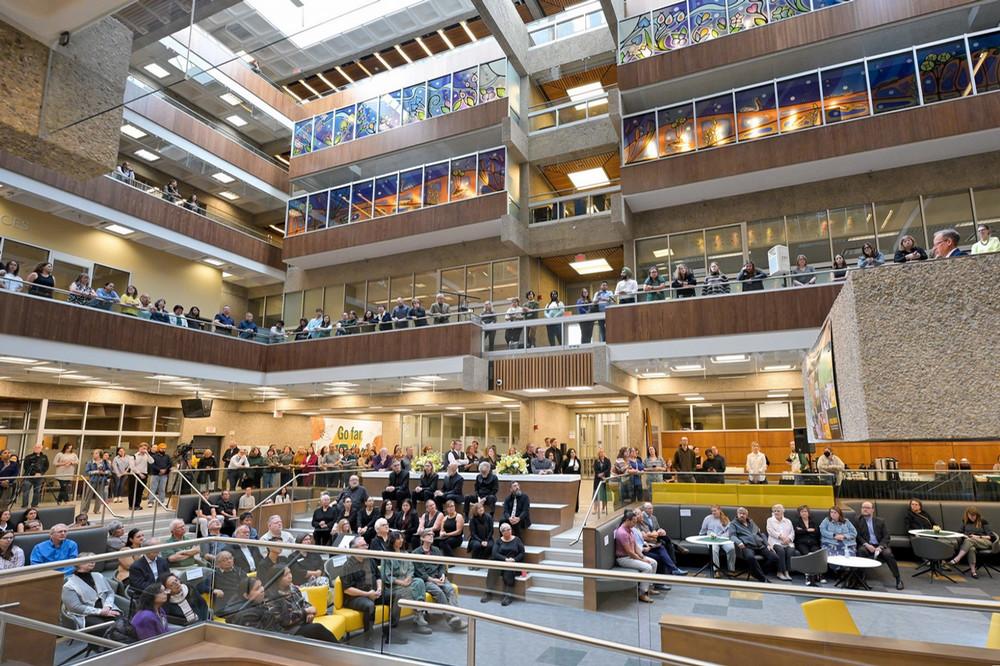
Inside the Revitalization
The Pit is now more versatile than ever, with cozy and flexible seating that adapts to your needs. Moveable chairs, benches, tables, and counter tops with bar stools make it easy to settle in for a quiet study session, gather with friends, or host larger events. At the centre of the Pit is a new presentation stair, designed to support everything from small classes to performances. Plug-ins were also added through the space, making it more functional for today’s campus life.
The revitalization also prioritized accessibility and safety, adding a new ramp into the Pit, eight gender-neutral washrooms and two fully accessible washrooms on the main level, and handrails to improve safety on upper-level walkways.
And that’s not all. At the entrance of the AdHum Building, space has been reclaimed and transformed into a cozy seating area with a fireplace and floor art. Outside, visitors are greeted by an updated exterior and a new steel sculpture.
A Land Acknowledgement plaque has also been installed, reaffirming the University’s ongoing commitment toward reconciliation and putting things right.
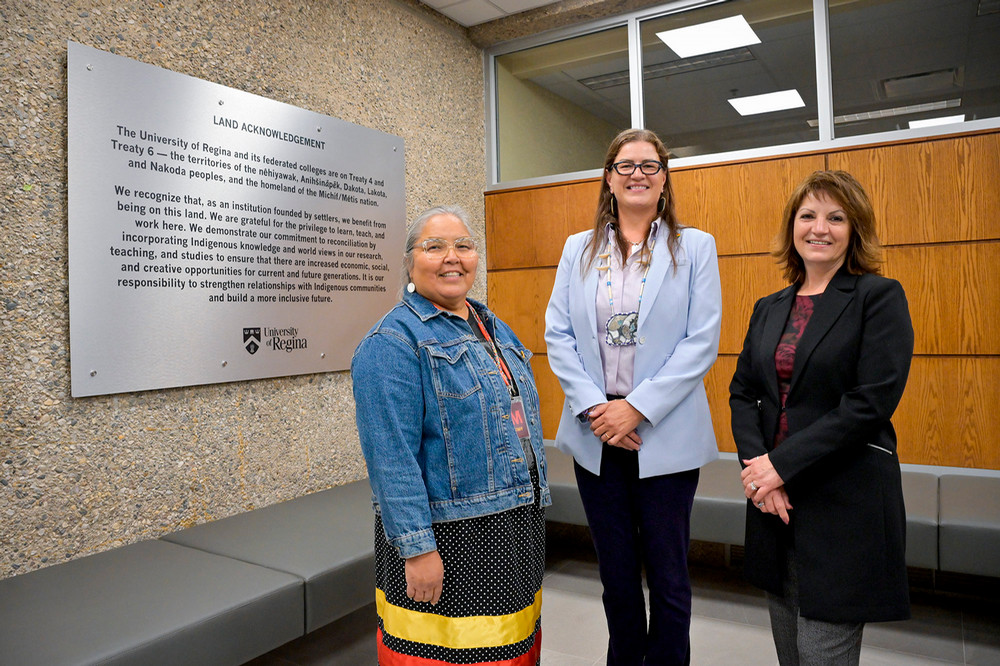
New Artwork, New Energy
As part of the revitalization, the space features new artworks by Larissa Kitchemonia, an Anishinaabe-Saulteaux visual artist from The Key First Nation and alumna of the First Nations University of Canada and the University of Regina. It also includes a sculpture by Sean Whalley, Head of the Visual Arts Department and Assistant Professor, and Grace Boyd, Ceramics and 3D Technician, both with the Faculty of Media, Art, and Performance.
Larissa Kitchemonia
Guided by an Indigenous Advisory Committee of Elders, Knowledge Keepers, faculty, and staff, Kitchemonia created Nīwin Mini ķeko Akiya (Four Good Directions), a floor design at the north entrance of the AdHum Building, and As Long As The River Flows, a series of window murals on the third and fourth floors. Her work brings the outside in, reconnecting contemporary spaces to the land and establishing a lasting Indigenous presence for decades to come.
“I hope Indigenous viewers see themselves reflected and acknowledged in these artworks. It is an experience I think we are not always given, to see ourselves in public spaces and represented in honest, non-romanticized ways,” says Kitchemonia. “And I hope that my art makes the spaces feel inclusive and bright, and that all who pass through feel welcomed into the space.”
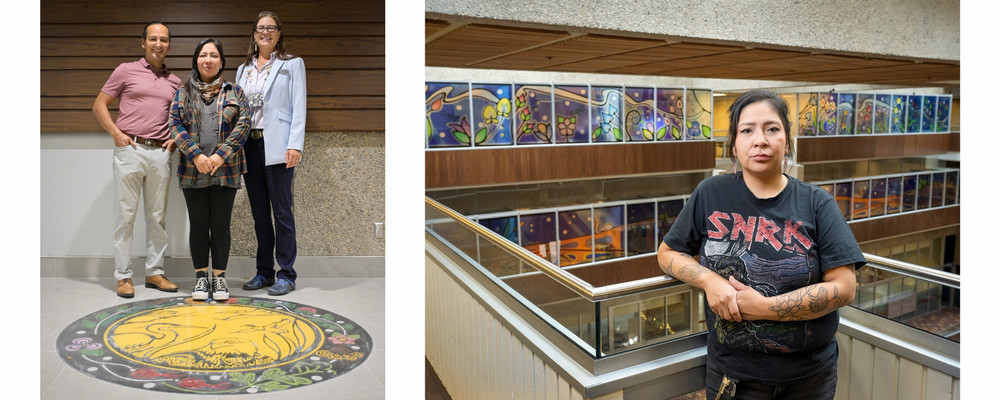
Sean Whalley & Grace Boyd
Created in celebration of the University’s 50th anniversary, Whalley and Boyd’s sculpture Echoes Between Centre reflects the University’s core values of equity, diversity, and sustainability. They selected Corten steel for its resilience and longevity, a material that develops a protective patina over time, allowing the sculpture to endure for generations.
“I hope people take away the emphasis on equity, diversity, and the sense of community at the University,” says Whalley. “Students come here from all over the world to gain new experiences, new knowledge, and to be part of something really exciting.”
Looking ahead, Boyd says, “I think what excites me most about this revitalization is what’s to come. I am really looking forward to seeing people gather.”
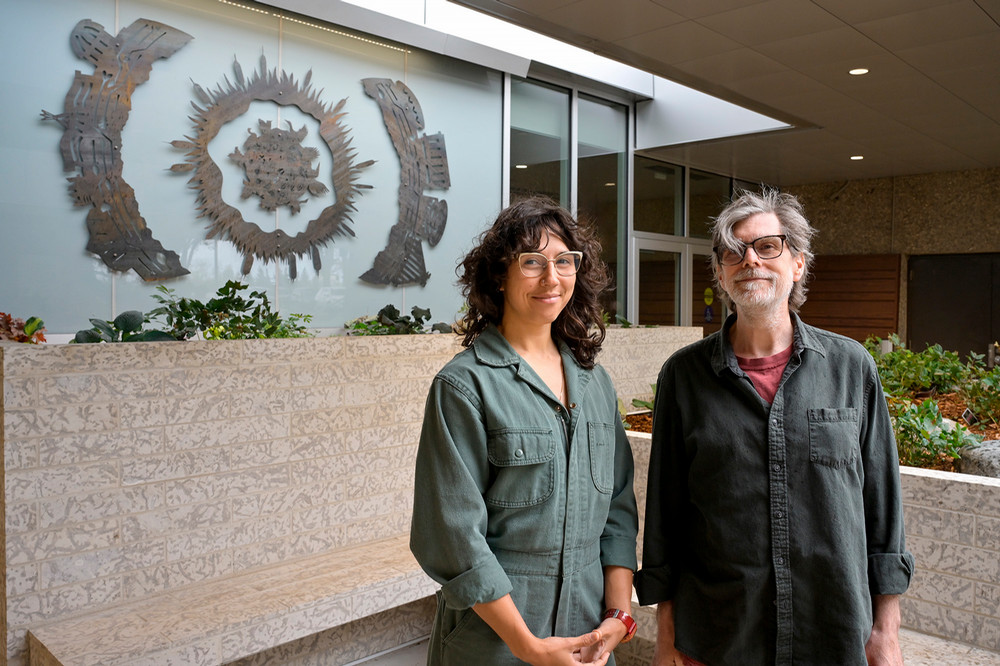
Thank You, U of R Community
The revitalization of the AdHum Pit was made possible through the generosity of donors, alumni, retirees, faculty, and friends—including Greg Bamford, whose support honours the legacy of his father, Dave Bamford, a former U of R Director of Budgets and Resource Planning.
Coming just months after the University’s 50th anniversary, the revitalization will uphold the Pits legacy as the University looks ahead to the next 50 years.
“By investing thoughtfully in the spaces that bring us together, we enhance the student experience and create vibrant places for connection and learning. The revitalization of this iconic space shows both current and future students that the University of Regina is a welcoming, inclusive, and accessible place, ready to support them today and for generations to come,” says Dr. Jeff Keshen, President and Vice-Chancellor.
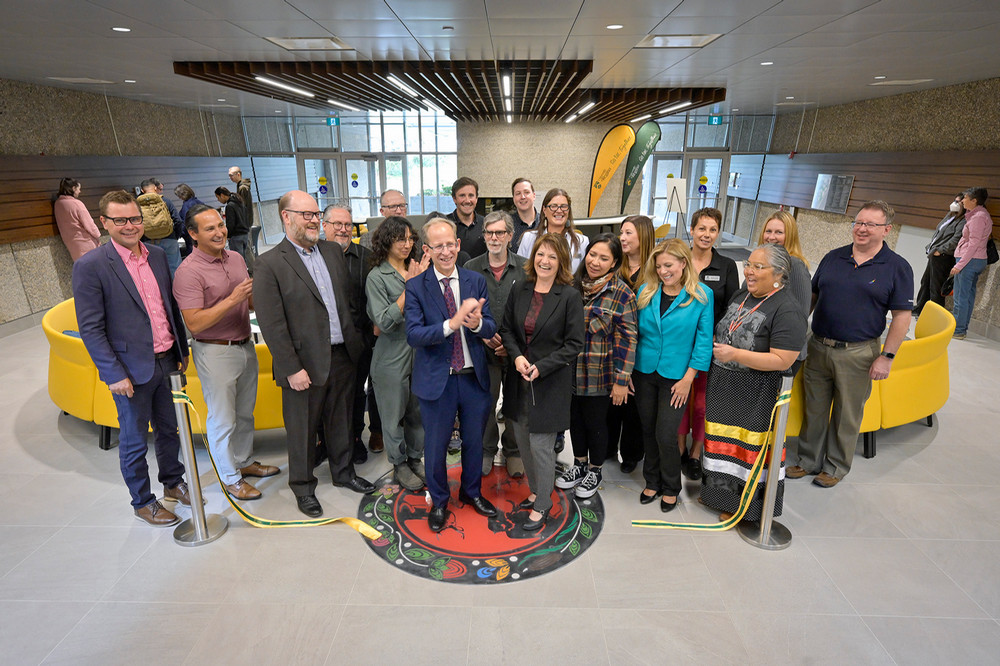
Take a closer look at the new AdHum space and hear from those involved — watch the video here!
About the University of Regina
At the University of Regina, we believe the best way to learn is through access to world-class professors, research, and experiential learning. We are committed to the health and well-being of our more than 17, 200 students and support a dynamic research community focused on evidence-based solutions to today’s most pressing challenges. Located on Treaties 4 and 6—the territories of the nêhiyawak, Anihšināpēk, Dakota, Lakota, and Nakoda peoples, and the homeland of the Michif/Métis nation —we honour our ongoing relationships with Indigenous communities and remain committed to the path of reconciliation. Our vibrant alumni community is close to 95,000 strong and enriching communities in Saskatchewan and around the globe.
Let’s go far, together.
